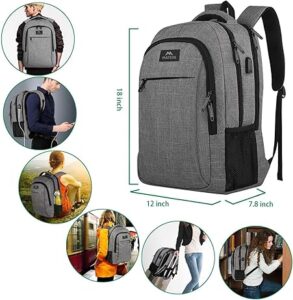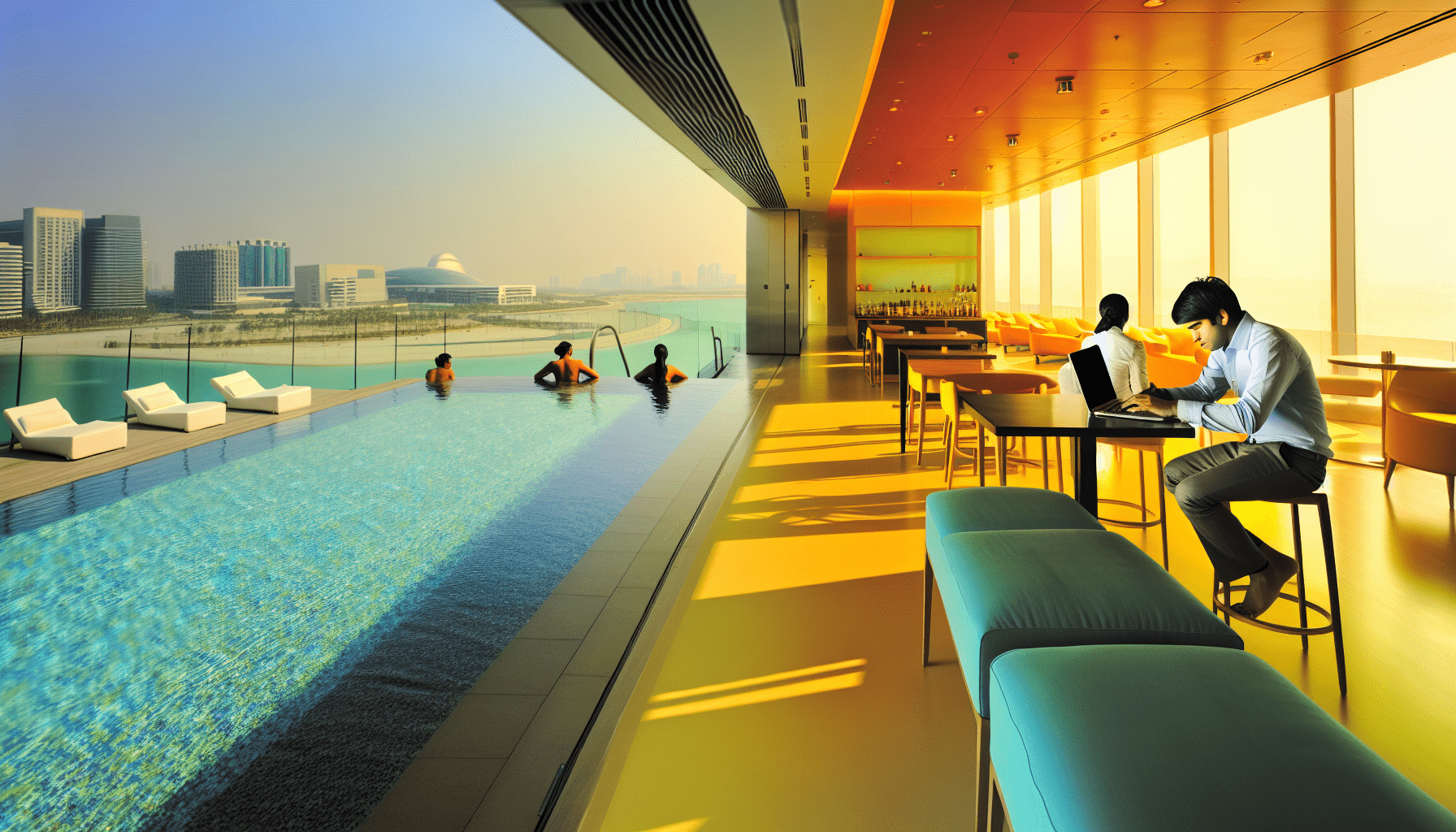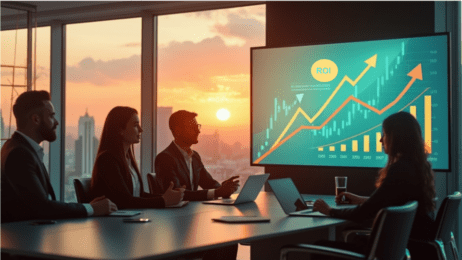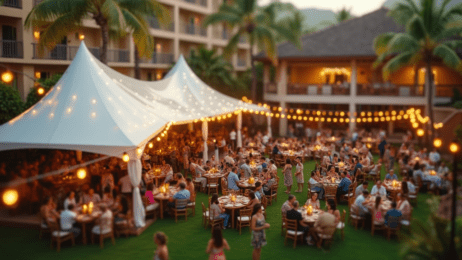The way people travel is evolving, with traditional boundaries between business and leisure becoming increasingly blurred. Enter bleisure travel—a hybrid trend where professionals combine work commitments with leisure experiences, forging a new category of traveler. This emerging trend is reshaping the hospitality industry, driven by shifting work cultures, an increasing emphasis on work-life balance, and the rise of “digital nomadism.”
Sign up for the monthly Behind the Bookings newsletter here
The bleisure market is growing at an impressive pace, with projections estimating it will reach a staggering $3.5 trillion by 2033, according to Hotel Tech Report. This lucrative sector offers immense potential for hotels, especially as professionals seek accommodations that cater to both productivity and relaxation. For hotel sales managers, it’s about strategically adapting their offerings to capture this fast-growing segment and unlock new revenue streams.
Understanding the Bleisure Traveler
At the heart of the bleisure travel boom are Millennials and Gen Z professionals. These younger demographics, shaped by digital-native lifestyles and progressive values, are driving this trend with their desire to integrate personal enrichment into professional obligations. Unlike previous generations of business travelers who often viewed work trips as purely functional, these groups see them as opportunities to explore new destinations and recharge after work hours.
Several motivations contribute to the popularity of bleisure travel. Chief among them are the quest for work-life balance, the ability to experience and immerse oneself in new destinations, and the newfound flexibility enabled by remote work policies. In fact, research reveals that approximately 60% of business travelers now extend their trips to include leisure activities, further underscoring how preferences have shifted.
The behavior of bleisure travelers demonstrates that they approach their trips holistically—seeking accommodations, amenities, and services that meet both professional and personal needs. As such, hotels must recognize and anticipate these hybrid requirements to stand out in a competitive market.
Tailoring Hotel Offerings for Bleisure Guests
To attract bleisure travelers, hotels must rethink their traditional offerings and focus on versatility:
- Flexible Booking Options: Bleisure guests often look to extend their stays, transitioning smoothly from work-related accommodations to more leisure-oriented arrangements. Hotels that offer seamless booking extensions, as well as adaptable check-in and check-out policies, can better meet these needs.
- Enhanced Amenities: A successful bleisure stay hinges on both professional support and relaxation opportunities. This means offering fast, reliable internet access, ergonomic in-room workspaces, and meeting facilities alongside leisure options such as spas, on-site dining, local tour packages, and wellness programs. The duality of these offerings is essential to appeal to this market.
- Customized Packages: Designing curated packages that combine productivity and relaxation can be a game-changer. For instance, a “Work & Unwind” package might include private office space, networking opportunities, and discounted spa treatments—all tailored to the busy professional looking for balance.
By aligning services with the expectations of bleisure travelers, hotels can present themselves as complete destinations that serve every facet of a guest’s trip.

As an Amazon affiliate, Smart Meetings earns from qualifying purchases. We appreciate your support.
Marketing Strategies to Attract Bleisure Travelers
Targeting bleisure travelers requires a thoughtful marketing strategy that highlights hotels’ ability to cater to this hybrid lifestyle:
- Targeted Digital Campaigns: Given that Millennials and Gen Z are the driving forces of bleisure travel, social media platforms like Instagram, LinkedIn, and TikTok can be powerful tools for outreach. Engaging content that showcases both the professional and leisurely sides of a stay—like stylish workspaces paired with scenic relaxation amenities—can position a hotel as the ideal choice.
- Content Marketing: Writing blog articles or creating videos that highlight local attractions, cultural experiences, or hidden gems in the area allows hotels to appeal to the leisure side of their clientele. Combining these with guides for productivity while traveling creates a seamless connection between business and leisure.
- Partnerships: Collaborating with local businesses, tour operators, and cultural attractions can help establish unique guest experiences, such as exclusive discounts or personalized tours. These partnerships enhance the overall value proposition that the hotel offers bleisure travelers.
With the right marketing tactics, hotels can position themselves as destinations for productive yet enriching trips.
Contact Smart Meetings to partner on your digital campaigns.
Training Sales Teams for the Bleisure Market
To effectively capitalize on the bleisure trend, sales teams must adapt to understand and connect with this emerging audience:
- Understanding Bleisure Needs: Sales team members need to be educated on the nuanced expectations of bleisure travelers. This includes understanding how these guests prioritize certain amenities, such as high-speed Wi-Fi or proximity to attractions, based on their combined business and leisure goals.
- Personalized Communication: Personalized service is key. Sales teams should develop the ability to recommend specific offerings, packages, and experiences that align with the guest’s unique preferences—whether they’re looking to relax after a day of meetings or explore the local culture on a free weekend.
- Feedback Mechanisms: Regular feedback loops allow sales teams to keep their finger on the pulse of traveler preferences. By gathering insights from guests about their experiences, hotels can continuously refine their offerings and enhance satisfaction.
Training staff with these key skills positions hotels to deliver exceptional experiences for bleisure guests while building strong, loyalty-driven relationships.
Measuring Success and Adapting Strategies
No strategy can succeed without clear benchmarks to measure progress. Hotels must define and track specific Key Performance Indicators (KPIs) to gauge the impact of their bleisure-targeted initiatives. These metrics can include extended stay rates, the uptake of curated packages, as well as guest satisfaction surveys focused on the quality of both business and leisure components.
Beyond measuring success, you should adopt a mindset of continuous improvement. As work and travel patterns continue to evolve, hotels must stay agile, regularly reviewing guest feedback and industry trends to adjust their bleisure strategies accordingly. Staying one step ahead will ensure long-term relevance and competitiveness.
Capitalizing on the Bleisure Opportunity
The rise of bleisure travel represents a transformative opportunity for the hospitality industry. As business and leisure merge, so too must hotel offerings, marketing approaches, and sales strategies.
By proactively adapting to this growing market, hotels can position themselves at the forefront of a $3.5 trillion industry, capturing the loyalty of modern professionals who prioritize both productivity and pleasure in their travel experiences.
Contact Smart Meetings to help you with any of the ideas listed in this article.




